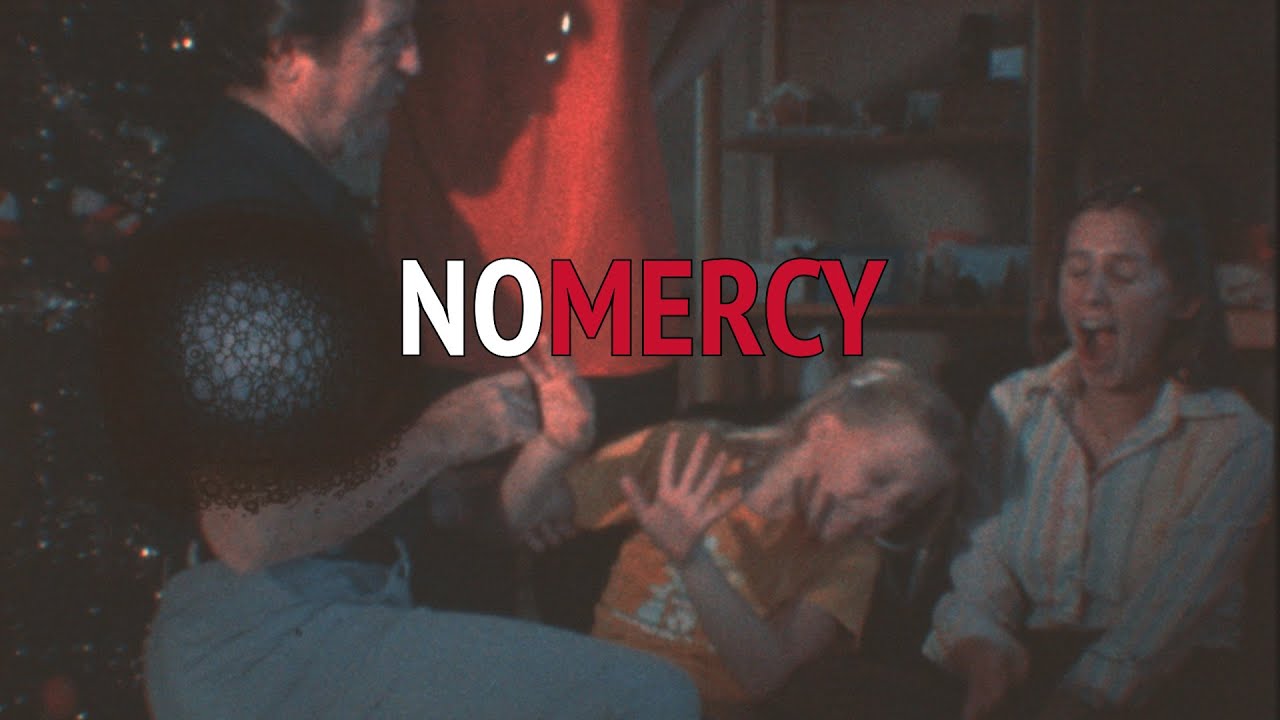No Mercy In Mexico: Unveiling The Truth Behind The Turmoil
Table of Contents
- Introduction
- Historical Context of No Mercy in Mexico
- Social Issues and Challenges
- Crime and Violence: A Deep Dive
- Government Response and Policies
- Economic Impact of Instability
- Human Rights and Social Justice
- International Perspective and Support
- Community Resilience and Grassroots Movements
- Future Outlook: Hope Amidst Chaos
- Conclusion and Call to Action
Introduction
No Mercy in Mexico has become a phrase that encapsulates the challenges and struggles faced by the nation. This article delves into the multifaceted issues that have earned Mexico this grim moniker, exploring the historical, social, and political factors that contribute to its current state. From crime and violence to government policies, we will examine how these elements intertwine to shape the reality of life in Mexico.
Mexico, a country rich in culture and history, has long been a land of contrasts. While it boasts stunning landscapes, vibrant traditions, and a resilient population, it also grapples with deep-rooted issues that have persisted for decades. The phrase "No Mercy in Mexico" is not just a catchy headline; it reflects the harsh realities faced by many of its citizens.
Understanding the complexities of Mexico's challenges requires a comprehensive analysis of its past and present. In this article, we will explore the historical context, social issues, crime rates, government responses, and international perspectives. By the end, readers will gain a nuanced understanding of why Mexico is often described as a place with "no mercy" and what can be done to address these pressing concerns.
Read also:5movierulz 2024 Download Telugu Hanuman Movies Safely And Legally
Historical Context of No Mercy in Mexico
To comprehend the origins of the phrase "No Mercy in Mexico," one must first examine the country's history. Mexico's turbulent past, marked by colonization, revolutions, and political instability, has laid the groundwork for many of the issues it faces today.
The Spanish conquest in the 16th century disrupted indigenous civilizations and established a colonial system that prioritized exploitation over development. This legacy of inequality persisted even after Mexico gained independence in 1821. The 20th century brought further upheaval, including the Mexican Revolution (1910–1920), which sought to address social injustices but left behind a fragmented political landscape.
The Drug War Era
One of the most significant contributors to the "No Mercy in Mexico" narrative is the ongoing drug war. Initiated in 2006 under President Felipe Calderón, the government's crackdown on drug cartels led to unprecedented levels of violence. Thousands of lives have been lost, and entire communities have been displaced due to cartel rivalries and clashes with law enforcement.
According to data from the Mexican government, over 300,000 people have been killed since the start of the drug war, with countless others missing or displaced. This staggering figure underscores the severity of the crisis and highlights the lack of mercy experienced by those caught in the crossfire.
Crime and Violence: A Deep Dive
The phrase "No Mercy in Mexico" is perhaps most closely associated with the country's alarming crime and violence rates. From organized crime to gender-based violence, these issues paint a grim picture of life in certain regions.
Organized crime, particularly drug trafficking, dominates headlines and shapes public perception. Cartels like the Sinaloa Cartel and the Jalisco New Generation Cartel wield immense power, engaging in extortion, kidnapping, and murder to maintain control. Their activities extend beyond drug production and distribution, infiltrating legitimate businesses and corrupting officials.
Gender-Based Violence
Another critical aspect of crime in Mexico is gender-based violence. Femicides—murders of women due to their gender—are alarmingly common, with hundreds reported annually. Activists argue that systemic failures, including inadequate legal protections and societal indifference, contribute to this epidemic.
Efforts to combat gender-based violence have gained momentum, but progress remains slow. Campaigns like #NiUnaMenos ("Not One Less") have raised awareness, yet the fight for justice and equality continues.
Government Response and Policies
Addressing the "No Mercy in Mexico" narrative requires examining the government's role in mitigating these challenges. Over the years, various administrations have implemented policies aimed at reducing crime, improving governance, and fostering economic growth.
President Andrés Manuel López Obrador (AMLO), who took office in 2018, introduced a security strategy focused on addressing root causes of violence through social programs. His administration prioritized poverty alleviation, education reform, and anti-corruption measures, aiming to create a more equitable society.
Challenges in Implementation
Despite these efforts, critics argue that AMLO's policies have fallen short. The militarization of law enforcement, for instance, has drawn criticism for exacerbating human rights abuses. Additionally, budget cuts to social programs and insufficient resources allocated to crime prevention hinder progress.
International cooperation has also played a role in Mexico's response. Collaborations with the United States and other countries focus on intelligence sharing, border security, and drug interdiction. However, these partnerships face challenges, including diplomatic tensions and differing priorities.
Economic Impact of Instability
The instability encapsulated by "No Mercy in Mexico" has profound economic implications. Crime and violence deter investment, disrupt supply chains, and burden public finances, hindering Mexico's potential for growth and development.
Foreign direct investment (FDI) in Mexico has fluctuated due to concerns about security and corruption. Companies operating in high-risk areas face increased costs related to security measures, insurance, and operational disruptions. These challenges discourage new investments and limit job creation.
Tourism Industry Challenges
Tourism, a vital sector of Mexico's economy, has also been affected. Popular destinations like Cancún and Los Cabos rely heavily on international visitors, but negative perceptions of safety deter tourists. The U.S. State Department's travel advisories, which warn against visiting certain regions, further impact tourism revenue.
Efforts to revitalize the tourism industry include marketing campaigns highlighting safe destinations and cultural attractions. However, restoring confidence requires sustained improvements in security and infrastructure.
Human Rights and Social Justice
Human rights violations are a central concern in the "No Mercy in Mexico" narrative. From enforced disappearances to police brutality, these abuses underscore the urgent need for accountability and reform.
Enforced disappearances, often linked to cartel activity and state complicity, have left thousands of families searching for answers. The Mexican government established a National Search Commission to address this crisis, but progress has been slow due to limited resources and political will.
Advocacy and Activism
Grassroots movements and civil society organizations play a crucial role in advocating for human rights and social justice. Groups like Amnesty International and local NGOs document abuses, provide legal assistance, and push for policy changes.
Public awareness campaigns and protests have amplified calls for reform, pressuring authorities to take action. While these efforts have yielded some successes, systemic change remains elusive without sustained commitment from all levels of government.
International Perspective and Support
Mexico's challenges resonate beyond its borders, prompting international attention and support. The global community recognizes the need for collaborative efforts to address the root causes of violence and instability.
The United States, as Mexico's neighbor and largest trading partner, has a vested interest in promoting stability. The Mérida Initiative, launched in 2007, provides funding and technical assistance for counter-narcotics efforts, judicial reforms, and human rights initiatives. While the program has achieved some successes, critics argue that it has not done enough to address structural issues.
Global Solidarity
Other countries and international organizations have also contributed to Mexico's efforts. The United Nations and European Union support projects focused on poverty reduction, education, and sustainable development. These initiatives aim to empower communities and build resilience against crime and violence.
Global solidarity is essential for tackling transnational challenges like drug trafficking and migration. By fostering partnerships and sharing best practices, the international community can help Mexico overcome its "no mercy" reputation and create a brighter future.
Community Resilience and Grassroots Movements
Despite the challenges encapsulated by "No Mercy in Mexico," communities across the country demonstrate remarkable resilience. Grassroots movements, driven by ordinary citizens, exemplify the power of collective action in the face of adversity.
Local initiatives range from community policing to educational programs aimed at youth empowerment. These efforts not only address immediate needs but also foster a sense of ownership and accountability among residents.
Success Stories
Several success stories highlight the potential for positive change. For example, the city of Medellín, once notorious for its drug-related violence, transformed into a model of urban renewal through innovative policies and community engagement. While Mexico's context differs, similar principles can inspire hope and action.
Supporting grassroots movements requires investment in capacity building, funding, and policy alignment. By amplifying local voices and solutions, Mexico can harness the strength of its people to build a more just and compassionate society.
Future Outlook: Hope Amidst Chaos
While the phrase "No Mercy in Mexico" reflects current challenges, it does not define the country's future. With concerted efforts and a commitment to change, Mexico can overcome its obstacles and chart a path toward prosperity and peace.
Education and youth empowerment are key to breaking the cycle of violence and poverty. Investing in quality education, vocational training, and mentorship programs can equip the next generation with the skills and values needed to drive positive change.
Building Trust and Collaboration
Restoring trust in institutions is equally important. Transparent governance, accountability, and citizen participation can bridge the gap between the government and its people. Collaboration between civil society, the private sector, and international partners can amplify impact and ensure sustainability.
While the road ahead is fraught with challenges, Mexico's rich cultural heritage, natural resources, and resilient population provide a strong foundation for progress. By embracing hope and determination, the nation can redefine its narrative and prove that mercy and compassion are not lost causes.
Conclusion and Call to Action
In conclusion, "No Mercy in Mexico" is a phrase that encapsulates the nation's struggles with crime, violence, poverty, and corruption. However, it also serves as a call to action—a reminder that change is possible with collective effort and unwavering resolve.
We invite you, our readers, to engage with this topic further. Share your thoughts in the comments section, discuss potential solutions, or explore related articles on our website. Together,
Mom And Son IPCam: Enhancing Home Security With Modern Technology
Timothy Olyphant Illness: A Comprehensive Look Into The Actor's Health Journey
David Leon Partner: A Comprehensive Guide To His Career, Influence, And Contributions

No Mercy En Mexico Escondido Unveiling The Secrets Behind The Thrills

No Mercy Mexico A Deep Dive Into The Phenomenon Shaping Conversations